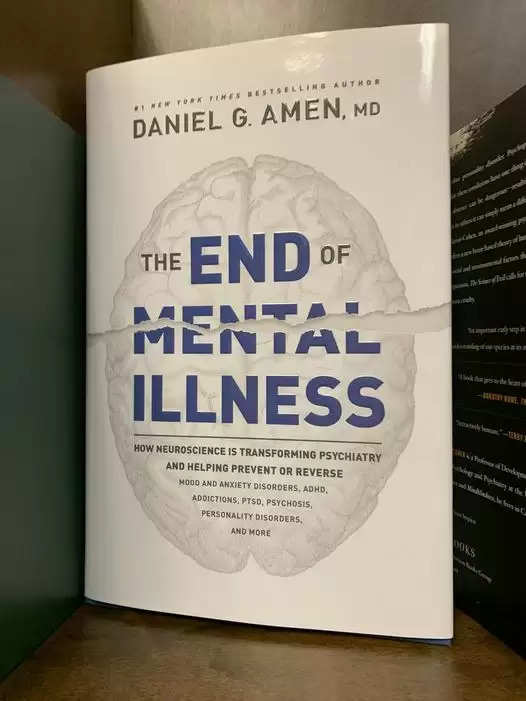10 Lessons from The End of Mental Illness by Dr. Daniel Amen

Dr. Via a neuroscience prism, Dr. Daniel Amen's book The End of Mental Illness: How Neuroscience is Transforming Psychiatric and Helping Prevent or Reverse Mood and Anxiety Disorders, ADD, OCD, PTSD, and More offers insights on mental health.
Ten lessons from the book are enumerated here:
1. Mental illness as brain health: Dr. Amen claims, using the prism of brain health, Understanding how brain function influences mental health can enable more effective treatments and help to direct preventative measures.
2. The Value of Brain Scans: The book emphasises, using brain imaging—including SPECT scans—the diagnosis and understanding of mental health issues. These tests can point up specific brain function abnormalities and guide treatment.
3. Drawing on neuroscience, Dr. Amen promotes treatments combining medicine, therapy, nutrition, and lifestyle changes suited to individual brain health needs.
4. The book underlines on maintaining mental health the requirement of lifestyle aspects including food, exercise, sleep, and stress management. Easy lifestyle changes can help greatly increase brain performance.
5. Among the various risk factors for mental illness include trauma, substance misuse, and environmental pollutants; trauma is especially likely to be reversed. Dr. Amen looks over. These components can help to either prevent or reverse mental health issues by means of identification and intervention.
6. Emphasising hope and the possibility of recovery, Dr. Amen pushes readers to believe in the possibilities of transformation and progress in their mental health by means of proactive activities.
7. The book stresses the need of mindfulness and self-care activities in enhancing mental wellness. Activities that improve self-awareness and leisure aid to boost brain capacity.
8. Dr. Amen stresses the significance of cognitive-behavioral techniques in addressing negative thought patterns and behaviours that encourage mental illness. Changing one's viewpoint could produce better feelings and behaviour.
9. Mental health recovery depends on creating strong support networks including family, friends, and experts. A reliable support system helps one develop resilience and coping skills.
10. Finally, Dr. Amen supports customised treatment plans based on individual brain health profiles. A one-size-fits-all answer is insufficient; more effective treatments follow from an appreciation of every person's unique brain function.
The End of Mental Illness questions a paradigm change in how we view and treat mental health while advocating a comprehensive, brain-oriented approach to acquire long-lasting gains in mental well-being.

Book: https://amzn.to/4f3qSsN
--
-- Thanks For Reading --
You Might Also Like: 7 Empowering Lessons from ADHD is Awesome by Penn Holderness
